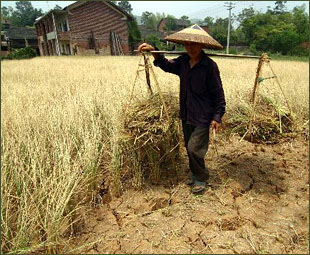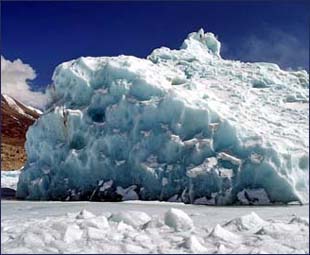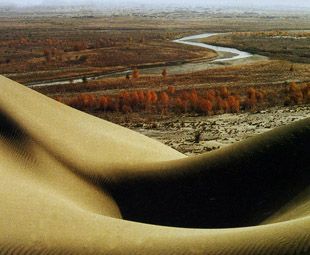|
|
|
 |
| Tropical storms Wipha and Francisco, potentially the most destructive ones in a decade, slammed into China's southern and eastern coastal provinces and cities in early autum this year. |
|
Interview | Extreme weathers | Government response
|
|
|
|
 |
| Inner Mongolia constitutes a quarter of China's total grasslands. But today the grasslands are no longer open range. The swelling human and animal population has put pressure on the fragile ecological system. |
|
Interviews | Brief Survey | 60th Anniversary
|
|
|
|
 |
| SEPA announced in early July that no more new industrial projects would see the light of day in several cities and industrial parks lying on four major rivers to halt the spread of pollution. |
|
Background | Government Response | Progress
|
|
|
|
 |
| While much of the country has been inundated by the worst rains of the year, widespread and prolonged drought is plaguing the northern, northeastern and southern regions. |
|
Background | Government Response | Progress
|
|
|
|
 |
| US Treasury Secretary Henry Paulson saw for himself yesterday efforts to reverse environmental degradation around China's largest inland saltwater lake, taking the spotlight off currency tensions for a day. |
|
Background | Tour Qinghai Lake | Force of Nature
|
|
|
|
 |
| The Tibetan and Xinjiang glaciers -- the major source of Asia's biggest rivers -- have melted by up to an alarming 17 percent at certain spots in the past four decades. |
|
|
|
|
|
 |
| China plans to invest 18.7 billion yuan (about US$2.46 billion) in the next eight years to try to roll back desertification in northwest China's Xinjiang Uygur Autonomous Region, the regional government announced Tuesday. |
|
|
|
|
|
 |
| Xiang Xiang, the first captive-bred giant panda to be set free into the wild was found dead on February 19 this year, but www.newssc.org released the news for the first time on May 31. Zoologists are convinced that Xiang Xiang died due to injuries sustained falling from a high place while fighting for food with other wild giant pandas. |
|
|
|
|
|
 |
| This year is the earliest summer in Beijing since 1971. Records show that since 2000, summer generally arrives in the capital in middle or late May. Before 2000, the season started even later. |
|
|
|
|















